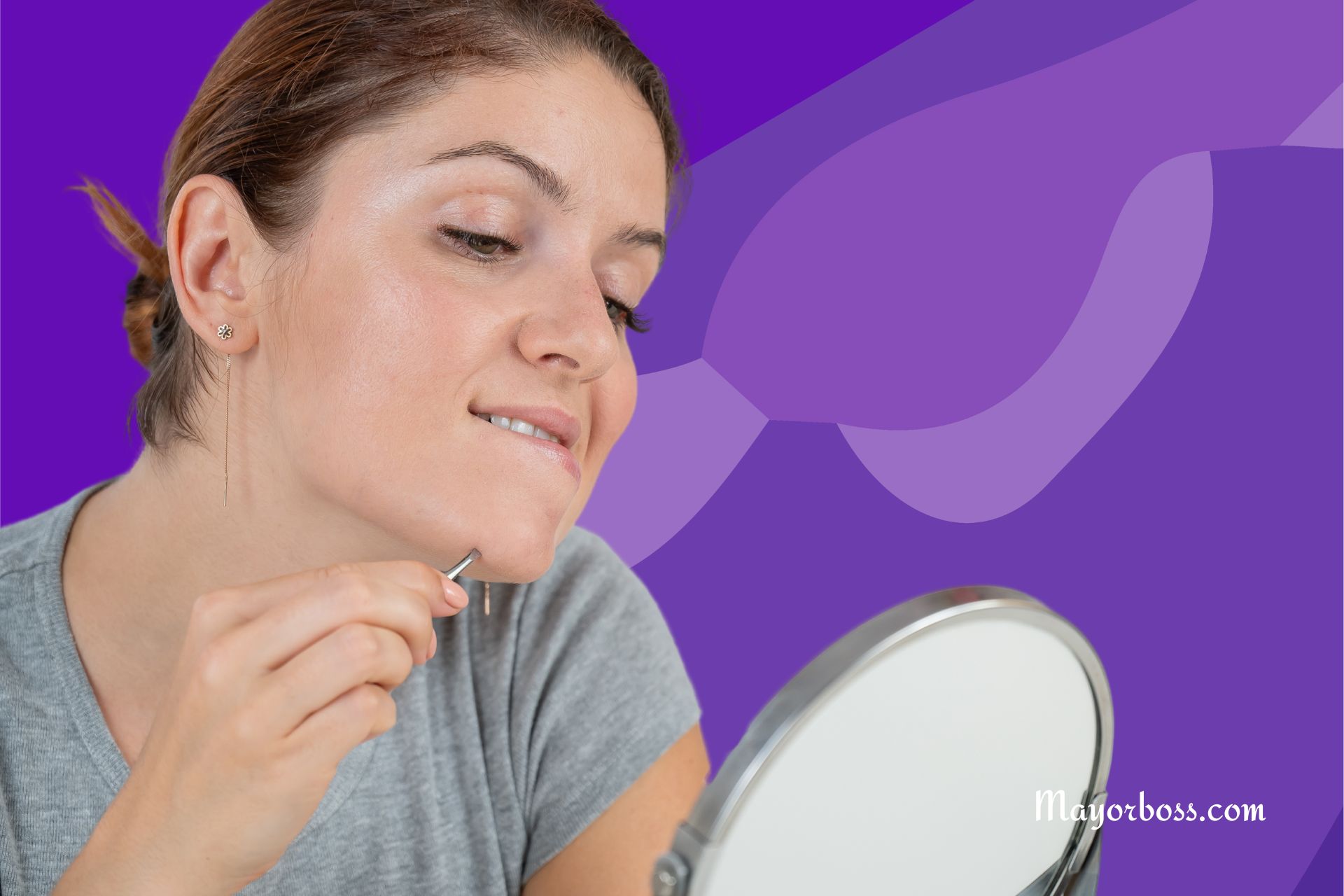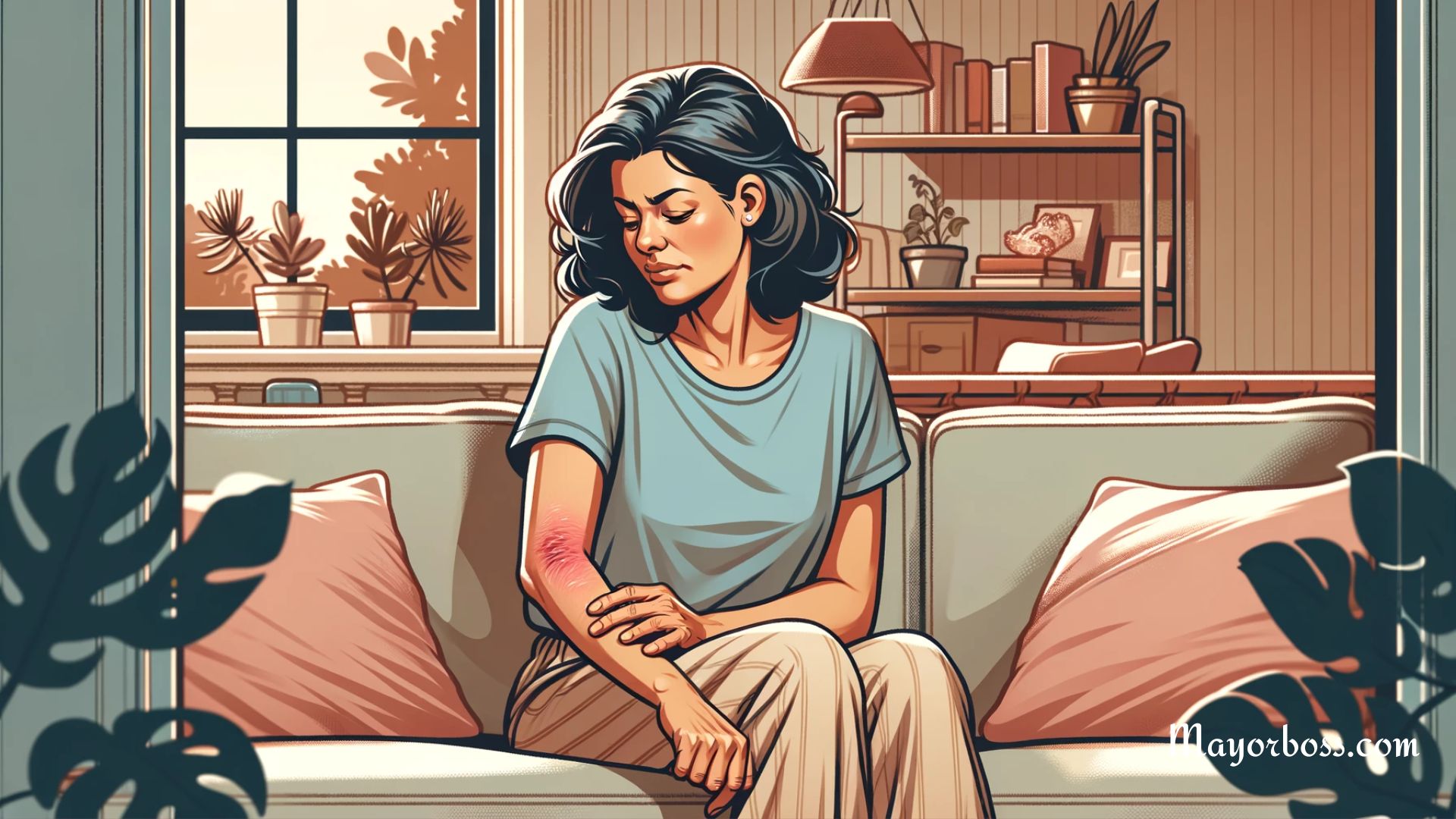6 Reasons Why Women Sometimes Get Chin Hair
Chin hair is something that many women notice at some point, and it can be a bit surprising. But don’t worry – it’s actually very common and, in most cases, totally normal. Dr. Natalia Hapych, a certified family medicine physician, will explain some primary reasons why women get chin hair and what’s happening in the body.

1. Hormonal Imbalance Can Be a Primary Reason
One of the main reasons women get chin hair is because of changes in hormone levels. Hormones like estrogen and testosterone play a big role in hair growth, and sometimes, these hormones can become unbalanced. When the level of testosterone gets higher compared to estrogen, women might see more facial hair, including on the chin.
Dr. Hapych says, “Hormonal imbalances often happen because of natural changes, like during puberty, pregnancy, or menopause.” She explains that during these times, the body’s hormone levels change a lot, which can lead to hair growing in places you may not want it. For some women, a condition called polycystic ovary syndrome (PCOS) can also cause hormone imbalances that make chin hair grow.
2. Polycystic Ovary Syndrome (PCOS) Can Cause Excessive Hair Growth
PCOS is a condition that affects about 10% of women of childbearing age, according to the National Institutes of Health. PCOS causes hormone imbalances that can lead to unwanted hair growth, including on the chin.
Dr. Hapych says, “PCOS is one of the most common reasons for unwanted chin hair in women. It’s linked to higher levels of androgens, which are hormones that can make facial hair grow.” She also says that other signs of PCOS can include irregular periods, acne, and weight gain. If you think PCOS might be causing your chin hair, it’s a good idea to see a doctor.
3. Genetics Can Be a Reason for Chin Hair
Have you noticed that some women in your family also have chin hair? Well, it could be because of genetics. If your mom, aunt, or grandmother had chin hair, you might be more likely to have it too. Genetic factors affect how sensitive your hair follicles are to hormones like testosterone.
“Some women simply inherit the tendency to have more facial hair,” Dr. Natalia Hapych says. “This isn’t always related to any health issue; it’s just a genetic trait that can be passed down from one generation to the next.” So, if chin hair runs in your family, it may just be part of your genes.
4. Aging and Menopause Can Lead to Chin Hair
As women get older, hormonal changes are common, especially around menopause. During menopause, estrogen levels drop a lot, which can make testosterone effects more noticeable. This hormonal shift can lead to more chin hair.
Dr. Hapych clarifies, “Aging naturally causes our hormone levels to change, and as estrogen goes down, you may notice new or thicker chin hairs. This is very common during menopause.” She says that this is a normal part of aging and isn’t usually a sign of any serious health problem.
5. Certain Medications Can Cause Hair Growth
Sometimes, the medications you take can also cause chin hair. Some drugs have side effects that include unwanted hair growth. Medications like steroids, certain hormone treatments, and even some birth control pills can change hormone levels and make facial hair grow.
“Medications that affect hormone levels can lead to unexpected hair growth,” notes Dr. Hapych. “Steroids, in particular, can increase testosterone levels, which may lead to more facial hair, including on the chin.” If you notice more hair growth after starting a new medication, talk to your doctor.
6. Stress Can Affect Hair Growth Too
We all know stress isn’t good for the body, but did you know it can also cause chin hair? High-stress levels can mess with hormone production, which can lead to more androgens. Androgens can make facial hair grow.
Dr. Hapych says, “Chronic stress can throw off your hormone balance, which sometimes causes changes like chin hair.” She recommends managing stress through relaxation, exercise, and getting enough sleep to help keep hormones balanced and reduce unwanted hair growth.
How Can You Get Rid of Chin Hair?
If chin hair bothers you, there are many ways to manage or remove it. Some common methods include plucking, waxing, threading, and using hair removal creams. For longer-lasting results, you might consider laser hair removal or electrolysis, which can offer more permanent solutions. Dr. Hapych also notes, “Treating any underlying hormone problems, like PCOS, with your doctor can help reduce unwanted hair growth.”
Lifestyle changes, like keeping a healthy weight, managing stress, and eating a balanced diet, can also help keep your hormones balanced, which may reduce chin hair over time.
When Should You See a Doctor?
For most women, chin hair isn’t something to worry about. But if you notice a lot of new hair growth suddenly or other symptoms like irregular periods, acne, or weight gain, it might be time to see a doctor. Dr. Natalia Hapych advises, “If you’re worried about the amount of chin hair you have or if it comes with other symptoms, it’s important to get checked by a doctor.”
Your doctor can help find out if there is an underlying cause, like PCOS or another hormone issue, and work with you to make a treatment plan that’s right for you.
Chin hair in women is common and usually not something to worry about. Whether it’s from genetics, hormones, aging, or stress, there are ways to manage it. Dr. Natalia Hapych advises that understanding why you have chin hair can help you decide how to handle it, whether by caring for it at home or by getting advice from a doctor.






